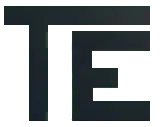Microsoft's VASA-1 Revolutionizes Deepfake Technology
A Leap Towards Hyper-Realistic AI-Generated Content
Mon Apr 22 2024
Microsoft has once again pushed the boundaries of artificial intelligence with the introduction of VASA-1, a cutting-edge deepfake technology capable of creating highly realistic videos of a person using just a single photo and one audio track. This innovation could potentially transform various sectors, from entertainment to cybersecurity, but it also raises significant ethical concerns.
The Technology Behind VASA-1
VASA-1 leverages advanced machine learning algorithms to analyze the photo and audio file, understanding detailed facial expressions, lip movements, and even emotions. By doing so, it can generate a video that looks and sounds remarkably like the original person speaking the audio's content. This level of realism in deepfakes was previously unattainable without extensive datasets of the target person's images and voice recordings.
Potential Applications
The implications of such technology are vast and varied. In the film industry, VASA-1 could be used to produce high-quality content without the need for physical presence, significantly reducing production times and costs. It also opens up possibilities for creating more convincing virtual assistants and enhancing personalized experiences in gaming and virtual reality.
However, the technology's benefits are matched by its potential for misuse. In a world where seeing and hearing are believing, the ability to create convincing fakes could deeply impact public trust, spreading misinformation and complicating matters of security and identity verification.
Ethical and Security Concerns
Recognizing these challenges, Microsoft has emphasized its commitment to ethical development and deployment of VASA-1. The company has proposed guidelines for responsible use and is actively working on developing robust detection tools to distinguish between real and deepfaked content. Despite these efforts, the technology's inherent potential for harm remains a hot topic among ethicists and technologists alike.
The Future of Deepfake Technology
As AI continues to evolve, so too will the capabilities and potential applications of technologies like VASA-1. While the benefits are significant, the conversation around deepfakes is a reminder of the need for vigilance, as the line between virtual and reality becomes increasingly blurred.
In conclusion, while VASA-1 represents a remarkable technological achievement, it underscores the dual-edged nature of AI development, offering both incredible opportunities and significant ethical dilemmas. As we move forward, balancing innovation with responsibility will be crucial in navigating the future of deepfake technology.
